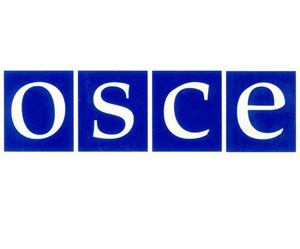OSCE is disappointed with absence of progress in electoral system of Belarus
Janez Lenarcic, Director of the OSCE Office for Democratic Institutions and Human Rights, sees no interest of the Belarusian authorities in liberalizing the Electoral Code.
On 13 October in Warsaw the chairman of the political council of the United Democratic Forces Anatol Liabedzka and honorary chairman of the United Civil party Stanislau Bahdankevich met with Janez Lenarcic, Director of the OSCE/ODIHR. As RFE/RL informs, he and a group of workers of the Office discussed with the Belarusian democrats proposals of the UDF on amendments of the electoral law of Belarus.
Reformation of the electoral legislation is one of the five key requirements of the European Union offered to the Belarusian authorities (there are 12 requirements altogether). Jean-Eric Holzapfel, Chargé d'affaires of the Delegation of the European Commission to Belarus, underlined the importance of this process.
Jean-Eric Holzapfel has stated that the EU calls upon Belarus to continue the dialogue with the OSCE/ODIHR.
In his turn, Anatol Liabedzka noted that the OSCE representatives are disappointed by the way the Belarusian side views their recommendations.
‘Lenarcic’s position on the Belarusian situation could be summed up in two short sentences: ‘Nothing happens. The process makes no headway.’ These are his words. Hopes have been exaggerated, there was optimism after Lenarcic visited Minsk in the beginning of the year, and then experts of the Office came. After meetings with high-ranking Belarusian officials, including Makei, they had an impression that the Belarusian authorities really sincerely wanted to change the legislation and law enforcement practice. But no positive steps have taken place after that. The last communications took place in May. And after that there hasn’t been any news,’ Anatol Liabedzka said.
So what does the opposition demand? Stanislau Bahdankevich accentuates two main demands:
‘It is transition from majority voted system of election of the lower chamber of the parliament to the mixed majoritarian-proportional electoral system,’ Bahdankevich said. ‘It means that half of deputies will still be elected in multi-mandate constituencies, while the other half will belong to political parties. It means that parties become a subject of the electoral process automatically. The second requirement is connected to vote count. It should be transparent and public. Ballot votes should be counted by one member of a commission who will show them to other members of the commission and to observers.’

















